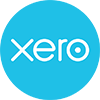As a small business owner, managing cash flow is one of the most important aspects of running a successful business. Cash flow is the amount of money coming into and going out of your business at any given time. It’s critical to keep a close eye on your cash flow to ensure that you have enough money to cover your expenses, pay your bills on time and invest in your business’s growth.
Here are some tips from our bookkeepers in Melbourne for managing cash flow in a small business:
Create a Cash Flow Forecast
One of the most effective ways to manage cash flow in your business is to create a cash flow forecast. This involves looking at your past income and expenses and projecting them into the future. This will help you to identify potential cash shortfalls and take action before they become a problem.
To create a cash flow forecast, start by listing all of your anticipated income and expenses for the next month, quarter or year. This could include things like rent, salaries, inventory and other operating expenses. Then, compare this to your projected income from sales or other sources.
Monitor Your Accounts Receivable
Accounts receivable refers to the money that your customers owe you for products or services that you’ve provided. Keeping a close eye on your accounts receivable is essential for managing cash flow. If your customers are slow to pay, it can impact your ability to pay your bills and invest in your business’s growth.
To manage accounts receivable effectively, set clear payment terms with your customers and follow up on late payments. Consider implementing an automated invoicing system to make the process more efficient. Bookkeeping services for small business can also be worth investing in to help you keep track of accounts receivable.
Manage Your Accounts Payable
Accounts payable refers to the money that you owe to suppliers and other vendors. Managing your accounts payable effectively is just as important as managing your accounts receivable. Delaying payments to your vendors can hurt your relationships with them and damage your credit score.
To manage your accounts payable, create a system for tracking your bills and due dates. Consider negotiating payment terms with your vendors to give you more flexibility in managing your cash flow.
Control Your Expenses
Controlling your expenses is critical to managing cash flow in a small business. Look for opportunities to reduce your costs without sacrificing quality. Consider negotiating with your suppliers for better prices or finding more cost-effective ways to market your business.
Maintain a Cash Reserve
Finally, maintaining a cash reserve is essential for managing cash flow in a small business. This will give you a cushion to fall back on in case of unexpected expenses or a slowdown in sales. Aim to maintain at least three to six months’ worth of expenses in your cash reserve.
In conclusion, managing cash flow in a small business requires careful planning and attention to detail. By creating a cash flow forecast, monitoring your accounts receivable and payable, controlling your expenses and maintaining a cash reserve, you can ensure that your business stays on solid financial footing and continues to grow and thrive. Contact Alexander Bright today to get further tips on managing cash flow and learn about our bookkeeping services in Melbourne.
Managed Accounting Services
Our Newsletter
Article Categories
Select Month
 +61 3 8658 5821
+61 3 8658 5821




